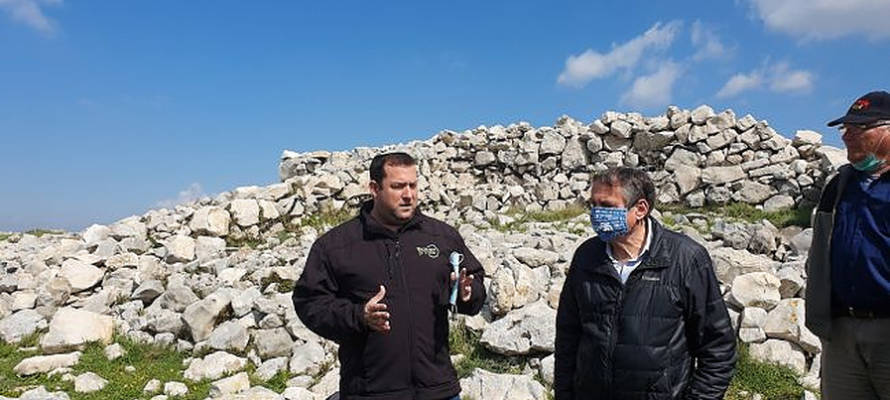Thousands visit historic Joshua’s Altar on the Passover vacation following desecration of the site by the Palestinian Authority.
By Yakir Benzion, United With Israel
Thousands of Israelis visited historic Mount Ebal in Samaria Monday, the holy site known as Joshua’s Altar that was seriously damaged last month by the Palestinian Authority, Israel National News reported.
The site is revered as the place where Joshua, the biblical prophet and political leader who led the Israelites out of the wilderness and into the Land of Israel, built an altar more than 3,000 years ago.
In a brazen desecration of the holy site, the Palestinian Authority deliberately removed and crushed stones from the ancient wall surrounding the altar to use them as gravel in a road-paving project.
The deliberate sabotage of the historic site by the Palestinians provoked outrage among Jewish and archaeological communities.
In response, the Samaria Regional Council, which is restoring the site, sponsored a huge event during the Passover holiday in which thousands of people took part at the archaeological site.
“We invite the general public to come and enjoy the national parks, heritage sites, wineries and nature sites, enjoy a breathtaking view,” said Samaria Regional Council chairman Yossi Dagan. “Samaria is open to everyone and is a 25-minute drive from Tel Aviv.”
Dagan praised the thousands who came to what is intended to be the first festival on Mount Ebal and the altar of Joshua.
“They [the Palestinians] are destroying and we are building,” Dagan said. “They are trying to erase history, and we are restoring and preserving world history and historical sites of the Jewish people.
“The thousands who come today prove that the Jewish people do not forget their roots. A nation that remembers its past will have a glorious future on all its land,” Dagan said.
The week-long Passover festival started Saturday evening. Known as the “Festival of Freedom” that commemorates the Jews’ liberation from slavery, the holiday is marked by scores of celebrations at nature and heritage sites throughout the country, including in Judea and Samaria.
